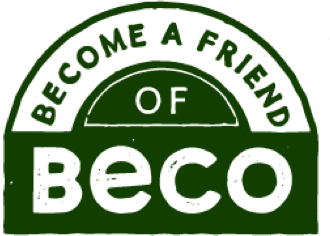A question we’re commonly asked here at Beco is whether grain-free dog food is hypoallergenic? The answer is that, even though the terms grain free and hypoallergenic are often used interchangeably, they’re not necessarily the same thing. An easy way to think of it is that most hypoallergenic dog foods are grain-free, whilst not all grain-free dog foods will be hypoallergenic. Grain-free dog foods are still a fantastic option, though, for most pet owners, and in this blog we’ll explain why.
What does hypoallergenic mean?
Hypoallergenic simply means without allergens, or allergy-causing ingredients; the prefix hypo is the opposite of hyper, which means too much of something, so hypo refers to an absence or small amount of something.
Dogs were originally carnivores (meat-eaters) and although they’ve adapted in the modern day to a more omnivorous diet, they can still find certain foodstuffs irritating, either for their skin and coat, or for their stomach and bowels. Some of the most common allergens known to induce reactions in dogs include:
Beef
Dairy Products
Chicken
Wheat
Soy
Corn
Lamb
Is grain-free dog food good for dogs with allergies?
On the whole, yes! Whilst grain-free dog foods won’t contain wheat or soy (to use the above list as an example) they might still contain other allergens such as beef or chicken, whereas a true hypoallergenic dog food would contain no allergens, whatsoever.
We’ve talked in previous blogs about how grains aren’t necessarily inherently bad for dogs - indeed, it’s usually the type and quality of grain that proves the main culprit, with cheap ‘filler’ material used to bulk out the food - however switching to a grain-free diet is essential for those dogs with gluten and grain allergies/intolerances, and is even recommendable to those dogs without those allergies, to help prevent their development down the line.
The British Veterinary Association concluded, for instance, that around 70% of non-routine appointments were associated with skin complaints or stomach issues - both of which can be aided by opting for grain-free, or hypoallergenic dog foods - but make sure you get a good quality food, as some grain free options can be equally as bas as poor grain dog foods.

Does grain-free dog food help with itchy skin?
Whether your dog is allergic to grains or simply has a slight intolerance, the results can be highly uncomfortable for your dog, with symptoms including:
Dry, flaky skin
General itchiness
Rashes over the body
Raw, sore paw pads
Changing to grain-free dog food may help with itchy skin and leave your dog’s coat in a much nicer, more comfortable state than it was, previously.
Is ‘No Corn, Wheat or Soy’ the Same as Grain-Free?
Although corn, wheat and soy are amongst the most commonly used grains, particularly in dog foods, they’re not the only grains. So whilst a dog food might claim to contain no corn, wheat or soy, that doesn’t automatically mean it’s grain free; other grains which might’ve been used include:
Barley
Oats
Rice
Rye
Sorghum
True grain-free dog foods will contain none of the above, and instead will utilise foods like wild boar, free range chicken, carrots, pumpkin, peas, spinach, kale, broccoli and more!
So, in summary, all hypoallergenic dog foods will be grain-free, but not all grain-free dog foods are hypoallergenic. That said, opting for a grain-free dog food can prove helpful for dogs with irritable skin and other allergies.
As always, if you’re looking for specific information for your own dog, then it’s also worth consulting a veterinarian. If grain-free dog food sounds like it might be right for your dog, then why not consider Beco’s very own grain-free wet and dry dog foods, which come in a huge variety of tasty flavours!







